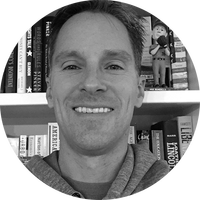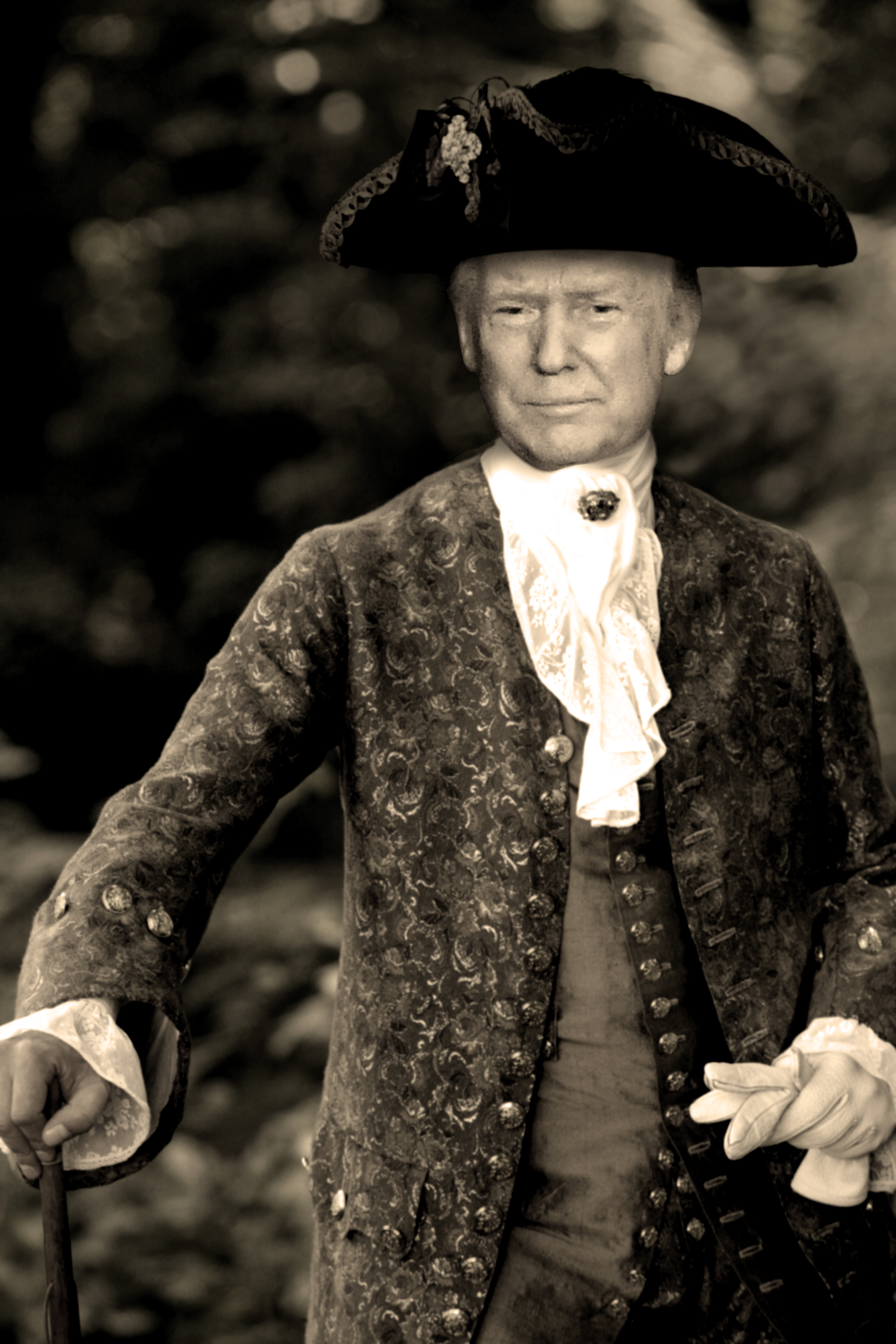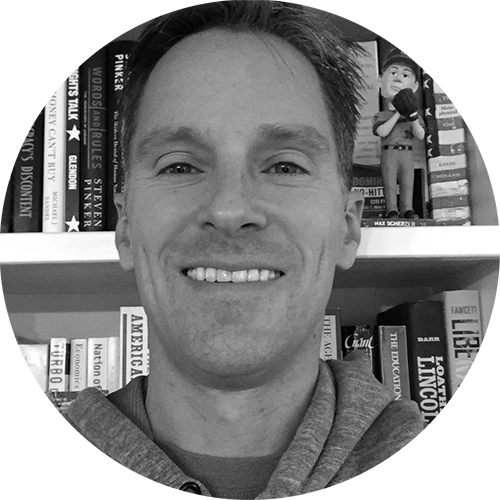Trump's twisted neo-aristocratism
No one is "born" for the Supreme Court


A free daily email with the biggest news stories of the day – and the best features from TheWeek.com
You are now subscribed
Your newsletter sign-up was successful
President Trump believes Brett Kavanaugh was born to be a Supreme Court justice.
At a rally last week in Missouri, Trump gushed of his embattled high-court nominee: "He was born — you talk about central casting — he was born, they were saying it 10 years ago about him, he was born for the U.S. Supreme Court. He was born for it. And it's going to happen."
This is problematic for all sorts of reasons.
The Week
Escape your echo chamber. Get the facts behind the news, plus analysis from multiple perspectives.

Sign up for The Week's Free Newsletters
From our morning news briefing to a weekly Good News Newsletter, get the best of The Week delivered directly to your inbox.
From our morning news briefing to a weekly Good News Newsletter, get the best of The Week delivered directly to your inbox.
Various commentators have fastened onto Trump's fondness for the term "central casting," which he has applied to everyone from Defense Secretary James Mattis to Supreme Court Justice Neil Gorsuch. They worry about its superficiality: If Trump is so concerned about how someone looks, he's necessarily going to overlook qualified people who don't fit the role as he imagines it. The converse — giving jobs to unqualified people who do look the part — holds true as well. Can anyone doubt that an ex-neurosurgeon wound up running the Department of Housing and Urban Development because, in Trump's mind, HUD equals "inner city" equals African-American?
The problem goes deeper than insipid superficiality, however.
Trump wouldn't be wrong to say that Kavanaugh was bred to be a Supreme Court justice. If such a thing as a fast track to the nation's highest court exists, Kavanaugh was most certainly on it: from the privileged upbringing in a leafy Maryland suburb to the elite private schooling to the plum professional postings with Ken Starr and George W. Bush.
Yet when Trump says "born," I think he means it. It's a telling formulation. It is related to but distinct from his "central casting" preference for men who look like they care about black poverty or like eminent general officers. The idea that someone might be born to be a judge is a peek into Trump's twisted neo-aristocratic view of social relations.
A free daily email with the biggest news stories of the day – and the best features from TheWeek.com
It pains me to say this, but it's actually quite Burkean. Indeed, Trump seems to subscribe to Edmund Burke's notion of the "little platoon," one of the most often cited but misunderstood concepts attributed to the "father of modern conservatism." Burke's "little platoons" aren't churches, neighborhoods, community groups, or other voluntary associations — they are social classes. Without "subdivisions," Burke wrote in his seminal 1790 work Reflections on the Revolution in France, society would generally regress toward a lower, undignified mean. Sure, you can "level" all you want, but you will "never equalize."
Burke wrote further that, while there's nothing dishonorable about being a tailor or carpenter or hairdresser, such persons can't possibly be permitted to rule the state. To contend otherwise, in the name of equality or combating prejudice, was to be "at war with nature" — a passage Burke actually supports with a footnoted verse from the apocryphal Book of Ecclesiasticus. ("The wisdom of a learned man cometh by opportunity of leisure: And he that hath little business shall become wise … every carpenter and work-master that laboureth night and day … shall not be sought for in public counsel, nor sit high in the congregation: They shall not sit on the judge's seat, nor understand the sentence of judgment.")
I don't mean to pick too harshly on Burke; he was a product of his time and place and there is much wisdom and value in Reflections' critique of late-18th-century revolutionary politics. And strictly as a practical matter, it's true that hairdressers and carpenters would not make particularly competent Supreme Court justices. But it's a universally accepted tenet of the modern American social contract that the sons and daughters of hairdressers and carpenters should absolutely aspire to become Supreme Court justices. Neither Republicans nor Democrats believe that affection for one's current "subdivision" or "little platoon" should define the future of one's offspring.
I don't believe Trump has deep feeling at all for such aspirations of social mobility. Trump "loves the poorly educated"; they should stay just as and where they are — so long as that means they pay tribute to his greatness and continue to play their unwitting role in his ongoing scam. In 2016, Trump managed to earn a reputation as some kind of populist. Yet his embrace of coal miners and steelmakers makes perfect sense in the context of "little platoons." In Trump's static, anti-dynamic vision of the American economy, the hard-hats continue to thrive in their "subdivision" — while the role of rich golfing master-of-the-universe playboy plutocrat is left to him.
As for the future of Brett Kavanaugh? Donald Trump has one abiding answer to that question: Let me be the judge of that.
Scott Galupo is a freelance writer living in Virginia. In addition to The Week, he blogs for U.S. News and reviews live music for The Washington Post. He was formerly a senior contributor to the American Conservative and staff writer for The Washington Times. He was also an aide to Rep. John Boehner. He lives with his wife and two children and writes about politics to support his guitar habit.
-
 Film reviews: ‘Send Help’ and ‘Private Life’
Film reviews: ‘Send Help’ and ‘Private Life’Feature An office doormat is stranded alone with her awful boss and a frazzled therapist turns amateur murder investigator
-
 Movies to watch in February
Movies to watch in Februarythe week recommends Time travelers, multiverse hoppers and an Iraqi parable highlight this month’s offerings during the depths of winter
-
 ICE’s facial scanning is the tip of the surveillance iceberg
ICE’s facial scanning is the tip of the surveillance icebergIN THE SPOTLIGHT Federal troops are increasingly turning to high-tech tracking tools that push the boundaries of personal privacy
-
 The billionaires’ wealth tax: a catastrophe for California?
The billionaires’ wealth tax: a catastrophe for California?Talking Point Peter Thiel and Larry Page preparing to change state residency
-
 Bari Weiss’ ‘60 Minutes’ scandal is about more than one report
Bari Weiss’ ‘60 Minutes’ scandal is about more than one reportIN THE SPOTLIGHT By blocking an approved segment on a controversial prison holding US deportees in El Salvador, the editor-in-chief of CBS News has become the main story
-
 Has Zohran Mamdani shown the Democrats how to win again?
Has Zohran Mamdani shown the Democrats how to win again?Today’s Big Question New York City mayoral election touted as victory for left-wing populists but moderate centrist wins elsewhere present more complex path for Democratic Party
-
 Millions turn out for anti-Trump ‘No Kings’ rallies
Millions turn out for anti-Trump ‘No Kings’ ralliesSpeed Read An estimated 7 million people participated, 2 million more than at the first ‘No Kings’ protest in June
-
 Ghislaine Maxwell: angling for a Trump pardon
Ghislaine Maxwell: angling for a Trump pardonTalking Point Convicted sex trafficker's testimony could shed new light on president's links to Jeffrey Epstein
-
 The last words and final moments of 40 presidents
The last words and final moments of 40 presidentsThe Explainer Some are eloquent quotes worthy of the holders of the highest office in the nation, and others... aren't
-
 The JFK files: the truth at last?
The JFK files: the truth at last?In The Spotlight More than 64,000 previously classified documents relating the 1963 assassination of John F. Kennedy have been released by the Trump administration
-
 'Seriously, not literally': how should the world take Donald Trump?
'Seriously, not literally': how should the world take Donald Trump?Today's big question White House rhetoric and reality look likely to become increasingly blurred
